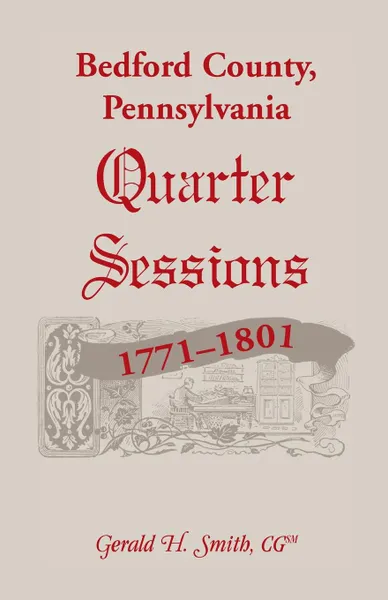Bedford County, Pennsylvania Quarter Sessions, 1771-1801 12+
Автор: Gerald H. Smith
2013
360 страниц
Категория: Литература на иностранных языках
ISBN: 9780788452536
Язык: Английский
Где найти книгу?
📕 Courts of Quarter Sessions derive from British common law. Pennsylvania's 1715 statute to establish a Court of Quarter Sessions of the Peace, gave these courts broad jurisdiction in a variety of areas. Quarter Sessions dockets contain administrative entries, such as oaths of office; governmental entries, such as petitions for roads; petty criminal offenses such as nuisance and keeping a tipling house (unlicensed sale of alcoholic beverages); as well as more serious criminal offenses, such as assault and battery, riot, forcible entry, house burning, and horse stealing. The dockets name husbands and wives, associate individuals with their township of residence, and clarify parentage in cases of illegitimate children. Illegitimate children and illicit relationships are found with charges of fornication, bastardy, and bigamy. Individuals from all social strata appear in these records: elected county officials, appointed township officials, common citizens as jurors or witnesses, and, of course, the miscreants. This volume includes abstracts of Docket 1 (1771-1789) and Docket 2 (1771-1801) which both begin with events at the formation of the county. Docket 1 begins with case entries and Docket 2 begins with oaths of office and oaths of allegiance. Thus, at the formation of the county two registers were kept concurrently. The dockets offer insight into history and the times. Oaths of office at the formation of the county reflect the political and religious climate in Britain, while the oaths used after the American independence have nothing to say about claimants to the British throne or religion. While most of this work abstracts court case information, certain items of historical interest, such as these oaths, are fully transcribed. Terms and Definitions and a full-name index add to the value of this work.
Мнения
